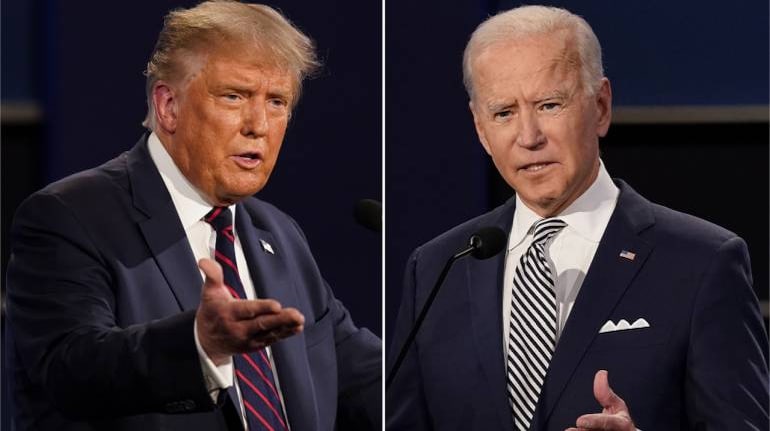



How are President Donald Trump & Joe Biden different?
1. Tax Policy:
Trump: Cutting the corporate tax rate from 35 percent to 21 percent was one of Trump's biggest policy achievements.
Biden: He wants to increase the corporate tax rate to 28 percent, which is still lower than the 35 percent rate.
2. Tech Regulation:
Trump: The Trump administration is conducting a wide-ranging antitrust probe into major technology companies.
Biden: Biden has also criticised Facebook and other technology companies during his campaign, and has proposed a minimum federal tax, which is primarily aimed at companies like Amazon etc.
3. Energy:
Trump: A Trump victory this week would be a boon for the energy sector.
Biden: He has pledged to "transition away from the oil industry", and has also outlined a plan to spend $2 trillion within his first four years in office, in order to cut down on carbon emissions, and electrify the transportation sector.
Overview:
Joe Biden may roll back the huge tax cuts, which President Trump gave corporate America in 2017. He has repeatedly said that he does not care about the markets, which may not be completely true, but President Trump is way more focussed on stock prices. On the tariff & trade war front, Mr. Joe Biden would take the opinions of close US allies, before taking decisions.
A few policy changes can be seen, like Mr. Joe Biden is pro-environment, while President Trump does not care much about the environment, and hence the energy sector may take a hit, if Mr. Biden comes to power. However, with Mr. Biden in power, he may be soft on China, and hence global sentiments might be boosted, as the ongoing trade war with China will take a back seat.
Notwithstanding the same, it is to be noted that the trade war has already taken a back seat, with the global focus now firmly on COVID, and not on the trade war.
Biden Victory: Tax-motivated selling can be seen in technology, and other stocks, and could push the Dow Jones index lower. Mr. Biden has proposed taxing capital gains and dividends as ordinary income, which would increase the tax rate from 20 percent, to 39.6 percent, for individuals and couples earning over $1 million, which is the highest tax bracket.
Trump Victory: The stock market typically performs its best when the incumbent party wins an election. Following an election year, the US stock market has returned historically, an average around 6.5 percent, if an incumbent party maintains its hold of the presidency, or if the president is re-elected. If the party changes, markets have historically gained around 5 percent.
Conclusion:
The Dow Jones has corrected sharply from near 29,000 levels, to 26,500 in the second half of October, with only one trading session to go, before 3rd November. We can expect the market to rebound in the near term post the election, subsequent to this; market can continue its down trend towards 25,000-24,000. Hence, the near term may be positive, whereas the medium term could prove corrective for US equities as the impact of Coronavirus lingers and economy continues to drag. In the long term, we can see the impact of the policies of President Trump, or Mr. Joe Biden, whoever gets elected, but in the medium term, sentiments and trends are likely to prevail.
(Abhishek Bansal, Founder Chairman at Abans Group.)
Disclaimer: The views and investment tips expressed by investment expert on Moneycontrol.com are his own and not that of the website or its management. Moneycontrol.com advises users to check with certified experts before taking any investment decisions.
Discover the latest Business News, Sensex, and Nifty updates. Obtain Personal Finance insights, tax queries, and expert opinions on Moneycontrol or download the Moneycontrol App to stay updated!
Find the best of Al News in one place, specially curated for you every weekend.
Stay on top of the latest tech trends and biggest startup news.